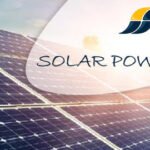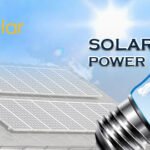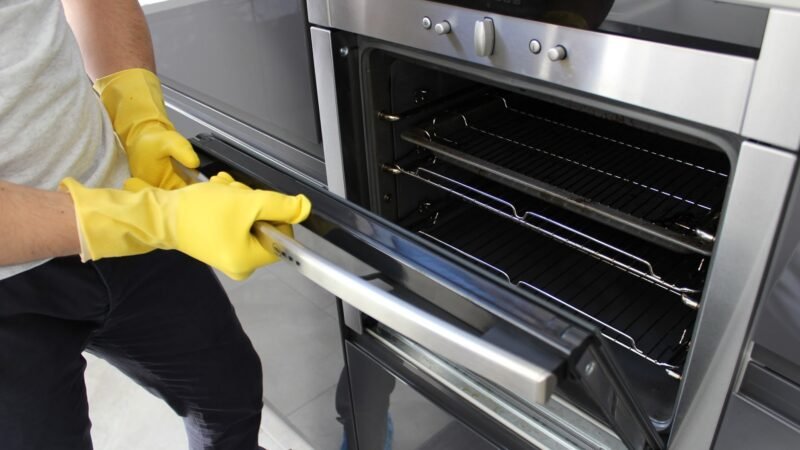Those who manufacture and sell solar panels in Melbourne are aware of its advantages provided to commercial…
5 Ways To Get Started With Solar Energy
Do you want to lower your home’s carbon footprint, reduce your energy costs, and protect the environment? If so, then solar power Melbourne may be the answer to your prayers. In addition to being a cost-effective way to generate your own electricity, solar panels have also become a viable financial investment as well. Let’s explore how you can get started with solar energy.
Research Your Home’s Solar Energy Potential
Before you can determine if solar power is for you, there are some factors you should consider. First, does your home have enough sunlight? If so, then solar panels would be a viable option for you. Second, how much energy are you currently using? People who use the least amount of energy might be able to benefit the most from solar power. Lastly, what kind of property taxes do you pay? If your property taxes are high and potentially offsetting any financial benefits of solar power, then it may not be worth installing panels in your home. After assessing these factors and exploring your options, it’s time to decide on the best course of action for yourself. There are many different ways that people have installed solar panels in their homes, including roof-mounted systems and ground-mounted systems (which can even be integrated with natural gas or oil). It’s important to do your research before making any decisions because each system has its own advantages and disadvantages that must be factored into a final decision.
Choose The Right Type Of Solar Panel
The first step in investing in solar power is choosing the type of panel that will best suit your needs. Whether you need to generate a lot of electricity or are looking for a more affordable option, there are many different types of panels to choose from. If you need a lot of electricity, solar panels with higher voltages are ideal. You’ll also want to consider how much area the panels need to cover and what the warranty is like. Some panels have warranties up to 40 years long, so you’re covered throughout the whole time you own them. If you want an affordable option, then monocrystalline panels should be right up your alley. These panels don’t require any mounting hardware, which makes them easy to install on rooftops or other flat surfaces. They also work well in shady areas where they can convert light into energy because they are typically high-efficiency when it comes to converting light into energy.
Determine How Much Solar Energy You Need
Before diving into the solar energy market, it’s important to know how much solar energy you need. The first step is to determine how many kilowatts (kW) of solar power you would like to generate through your panels. This number will help you estimate the size of your system and allow you to find out which type of solar panel technology is best suited for your home. If you’re unsure about whether or not solar power is right for you, talk to a professional who can help you decide. The next step is to calculate the monthly cost of your solar power system. To do this, use a site like EnergySage or DigiSolarSolarEstimator. These sites will be able to help estimate the costs associated with installing a system as well as provide information on any potential tax credits or rebates that might be available in your area. With these tools, it’s easy to figure out if solar energy is worth it for your home or business!
Install Your Own Solar System
If you have the time, money, and inclination to do it yourself, then you can install your own solar system. This is a great option for those who are handy with building things as well as for homeowners who want to take charge of their energy bills. Before deciding if this is the right option for you though, be sure to read up on the latest regulations and safety precautions. You will also need to find out about local ordinances and requirements before installing your own solar system. Once you’ve done all that work, here are some things to consider before buying a solar panel: * Should I go with panels or strings? * What kind of panel should I buy? * How many watts should my system cover? * Where should I put my panels?
Do you want to lower your home’s carbon footprint, reduce your energy costs, and protect the environment? If so, then solar power Melbourne may be the answer to your prayers. In addition to being a cost-effective way to generate your own electricity, solar panels have also become a viable financial investment as well. Let’s explore how you can get started with solar energy.
Research Your Home’s Solar Energy Potential
Before you can determine if solar power is for you, there are some factors you should consider. First, does your home have enough sunlight? If so, then solar panels would be a viable option for you. Second, how much energy are you currently using? People who use the least amount of energy might be able to benefit the most from solar power. Lastly, what kind of property taxes do you pay? If your property taxes are high and potentially offsetting any financial benefits of solar power, then it may not be worth installing panels in your home. After assessing these factors and exploring your options, it’s time to decide on the best course of action for yourself. There are many different ways that people have installed solar panels in their homes, including roof-mounted systems and ground-mounted systems (which can even be integrated with natural gas or oil). It’s important to do your research before making any decisions because each system has its own advantages and disadvantages that must be factored into a final decision.
Choose The Right Type Of Solar Panel
The first step in investing in solar power is choosing the type of panel that will best suit your needs. Whether you need to generate a lot of electricity or are looking for a more affordable option, there are many different types of panels to choose from. If you need a lot of electricity, solar panels with higher voltages are ideal. You’ll also want to consider how much area the panels need to cover and what the warranty is like. Some panels have warranties up to 40 years long, so you’re covered throughout the whole time you own them. If you want an affordable option, then monocrystalline panels should be right up your alley. These panels don’t require any mounting hardware, which makes them easy to install on rooftops or other flat surfaces. They also work well in shady areas where they can convert light into energy because they are typically high-efficiency when it comes to converting light into energy.
Determine How Much Solar Energy You Need
Before diving into the solar energy market, it’s important to know how much solar energy you need. The first step is to determine how many kilowatts (kW) of solar power you would like to generate through your panels. This number will help you estimate the size of your system and allow you to find out which type of solar panel technology is best suited for your home. If you’re unsure about whether or not solar power is right for you, talk to a professional who can help you decide. The next step is to calculate the monthly cost of your solar power system. To do this, use a site like EnergySage or DigiSolarSolarEstimator. These sites will be able to help estimate the costs associated with installing a system as well as provide information on any potential tax credits or rebates that might be available in your area. With these tools, it’s easy to figure out if solar energy is worth it for your home or business!
Install Your Own Solar System
If you have the time, money, and inclination to do it yourself, then you can install your own solar system. This is a great option for those who are handy with building things as well as for homeowners who want to take charge of their energy bills. Before deciding if this is the right option for you though, be sure to read up on the latest regulations and safety precautions. You will also need to find out about local ordinances and requirements before installing your own solar system. Once you’ve done all that work, here are some things to consider before buying a solar panel: * Should I go with panels or strings? * What kind of panel should I buy? * How many watts should my system cover? * Where should I put my panels?
Learn About Financing For Your Solar Installation
If you’re looking to start solar power, the first thing you should do is take the time to learn about financing. Solar panels are expensive, so you’ll have to know how much a solar installation will cost before you sign up. What you’ll need to know is how much money you can save on your monthly bills and how long it will take for your investment to pay off. How long it takes for your investment to pay off depends on how many stars there are in the sky and the sun’s exposure hours in your area. Another factor that will affect your costs is where you live.
If you live in a less-sunny area with fewer hours of sunlight, then your cost per watt will be much greater than someone living somewhere sunny with 12 hours of sunlight daily. Regardless of where you live, however, if financing isn’t an option or if cash flow is a concern, then consider investing in solar leasing instead of buying outright. In this case, the company provides all the materials and pays for installation costs while offering a fixed monthly payment until the end of the lease term when ownership officially transfers over to you.

Get Involved With Community Solar Projects
Community solar projects are a great way to get your feet wet with solar energy. These types of projects allow you to invest in a community-owned power plant that will generate electricity for the entire area. It’s an innovative way to provide green, clean energy without having to install solar panels on your own home or business.
Bottom line
summary There are a few things to consider when you’re getting started with solar energy. The first is cost. Solar Panels in Melbourne aren’t cheap, but if you use them all over your property, your total budget will be reduced significantly. You should also think about how much space you have available for solar panels and whether or not you want to install them on your roof. If so, it might be best to consult with an expert in order to make sure that they will add value to your home and not cause any issues with the installation.
If you’re looking to start solar power, the first thing you should do is take the time to learn about financing. Solar panels are expensive, so you’ll have to know how much a solar installation will cost before you sign up. What you’ll need to know is how much money you can save on your monthly bills and how long it will take for your investment to pay off. How long it takes for your investment to pay off depends on how many stars there are in the sky and the sun’s exposure hours in your area. Another factor that will affect your costs is where you live.
If you live in a less-sunny area with fewer hours of sunlight, then your cost per watt will be much greater than someone living somewhere sunny with 12 hours of sunlight daily. Regardless of where you live, however, if financing isn’t an option or if cash flow is a concern, then consider investing in solar leasing instead of buying outright. In this case, the company provides all the materials and pays for installation costs while offering a fixed monthly payment until the end of the lease term when ownership officially transfers over to you.
Get Involved With Community Solar Projects
Community solar projects are a great way to get your feet wet with solar energy. These types of projects allow you to invest in a community-owned power plant that will generate electricity for the entire area. It’s an innovative way to provide green, clean energy without having to install solar panels on your own home or business.
Bottom line
summary There are a few things to consider when you’re getting started with solar energy. The first is cost. Solar Panels in Melbourne aren’t cheap, but if you use them all over your property, your total budget will be reduced significantly. You should also think about how much space you have available for solar panels and whether or not you want to install them on your roof. If so, it might be best to consult with an expert in order to make sure that they will add value to your home and not cause any issues with the installation.













